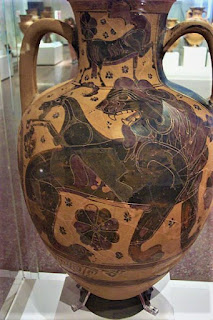The first things to realize is that the ancient Greeks did not have a "holy book" of religion and myth.
Not only was ancient Greece a collection of City States completely independent from one another in government and beliefs, but there was no law dictating how someone could view the Gods or what stories they could accept or not.
In fact, it's kind of inaccurate to call it "The Ancient Greek Religion" because there were, in fact, many forms of ancient Greek religion and Cult. Sparta and Athens, for example, believed in the same Gods but did not have the same religion or culture. Not to mention the fact that there were cults everywhere that adhered to their own identities.
So for instance, someone today might say that my beliefs on Artemis being gracious and kind to people is contradicted considering the myth of Actaeon, but there's literally nothing in Hellenic religion which says I have to accept that story as literal fact or accept it at all.
We do know that we believe in Artemis as She is, of course. But I don't have to believe everything that everyone tells me about Her. I have the right to my own experiences and perspectives, and it does not denote me as a Hellenist.
It's also true that not only could a given myth vary in detail from City to City, but many of them were handed down by word of mouth, which can change and modify with each teller, especially as the time and culture changes.
In fact, some of the myths we accept today as Greek, were not even composed by the Greeks. The story of raped Medusa that people commonly call Greek in our time, was actually written by a Roman. The original story, which says nothing of rape or punishment, was written by the Greek Hesiod.
This is also not a modern change to Hellenism either. Greeks were not forced to accept a given story. Historically, it's accepted that around the time of the Hellenistic Era, the myths as literal facts began to waiver as a concept.
But considering people like Plato and Sokrates, I think it began much sooner than that. Those men clearly believed in the Greek Gods but were also philosophers and not necessarily mythologists. They wrote about people's experiences with the Gods instead of taking written myths and saying, "Here's the 100% truth."
Hellenic religion can be hard to understand, but once you manage to grasp the core, it'll make perfect sense to you.
In the Goodness of the Gods, I'll see you at the next Herm down the road.
Chris Aldridge.







